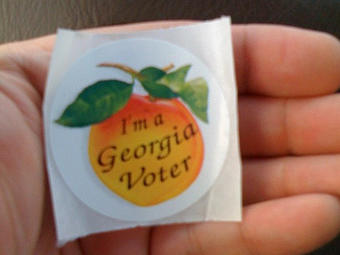
Section Branding
Header Content
Expert: Voter Checks Beyond Law
Primary Content

The state is suing the federal government to get its voter verification checks approved.
The DOJ rejected Georgia's verification practices. The secretary of state says they just comply with the federal Help America Vote Act, but legal analysts say Georgia’s implementation goes beyond what federal law requires.
HAVA requires states try to verify information of new voters by matching it against what’s in the Driver Services data base. The checks are for name, date of birth and a drivers license number or some social security digits.
But Georgia added another check says elections law expert Justin Levitt at Loyola Law School in Los Angeles.
"They added an extra check against the driver rolls for citizenship information. That entire check isn’t part of the HAVA structure… No other state that I’m aware of does that," says Levitt.
When Georgia started the citizenship check in the 2008 elections, more than 7,000 people were flagged and notified their votes weren’t going to be counted until they clarified the information.
Levitt says that’s another reason the DOJ won’t approve the state’s voter checks.
"In Georgia the part that’s unclear is exactly what status you’ve got at the point the match comes back with an error and what you have to do to overcome that."
Levitt says other states count the vote regardless of a mismatch and assume it was a data base error. He says studies show most discrepancies are due to data entry mistakes and regular inconsistencies like name changes due to a marriage.
Georgia is one of 16 states with a history of discrimination that must get pre-clearance for any changes to its voting process under the Voting Rights Act.
Tags: Georgia, Secretary of State, Department of Justice, Voting Rights Act, elections, Voter Verification, voter checks, HAVA, Help America Vote Act, preclearance
Bottom Content

